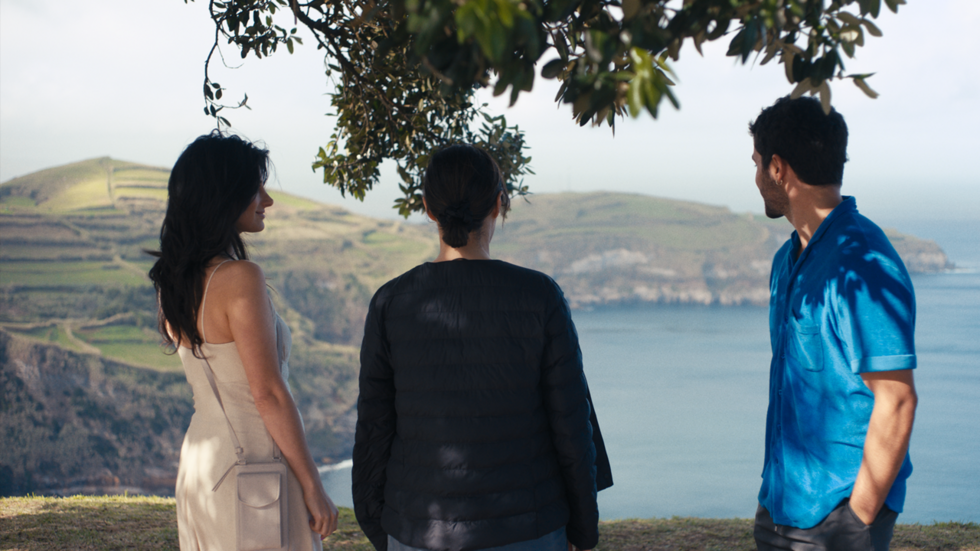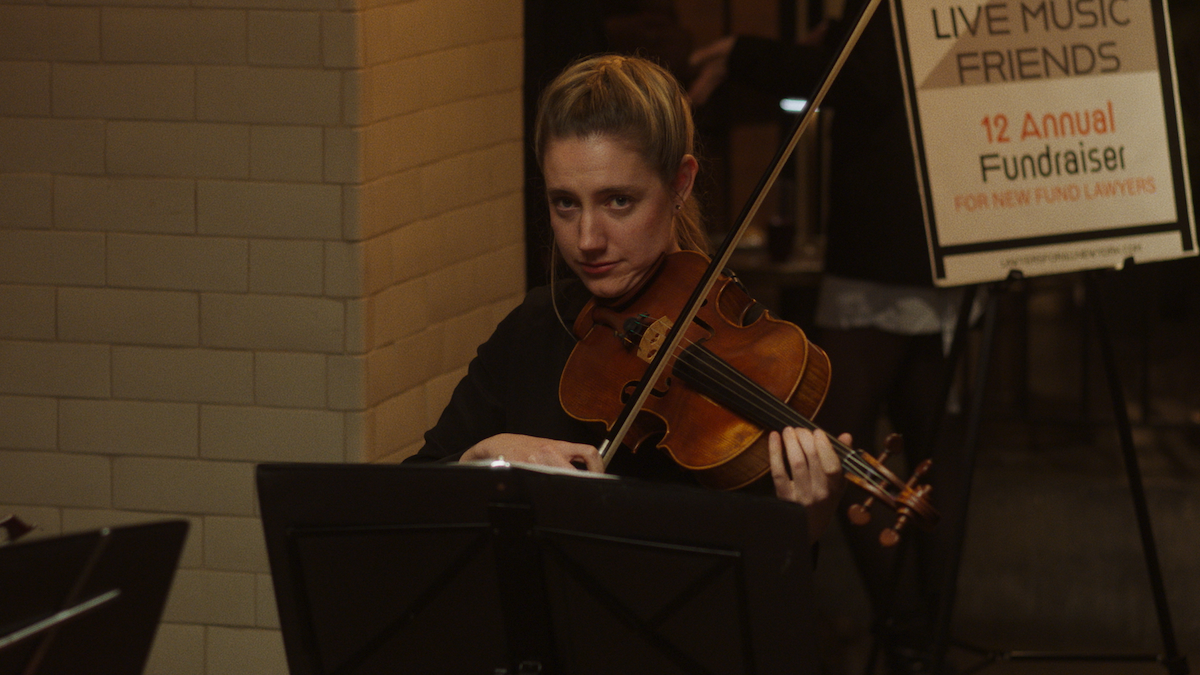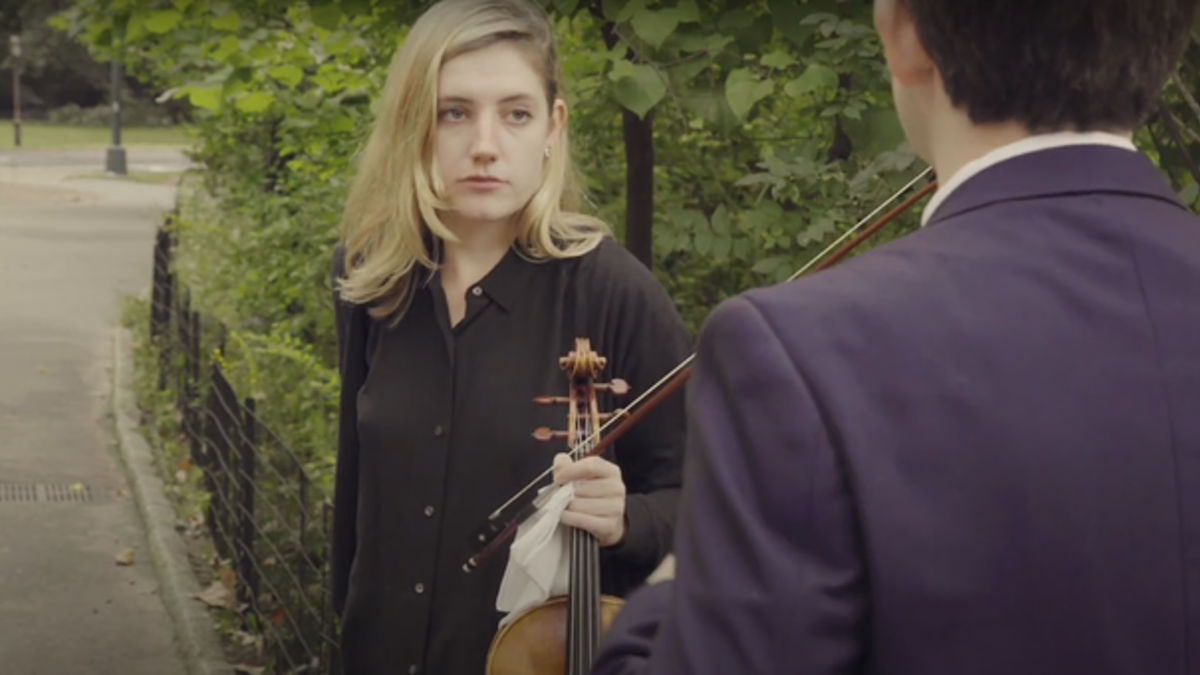For Script Magazine
Susan Kouguell chats with the award-winning writer and director about her feature film debut, blending lightness and darkness in her writing, and more.
About Honeyjoon: Persian-Kurdish Lela (Amira Casar) and her sensual American daughter June (Ayden Mayeri) travel to a romantic Azorean Island, for the one-year anniversary of Dad’s death. They planned this trip to be together, but Lela and June have opposite views about why they’re there, how to grieve, and June’s tiny bikini. Surrounded by honeymooners, doom-scrolling for Woman Life Freedom, and taken on a tour by their hot philosophical guide, João (José Condessa); Lela and June find each other… coming back to life.

Lilian Mehrel won the 2024 AT&T Tribeca Untold Stories award for Honeyjoon. She was selected for the 2025 SFFILM Rainin Grant, TorinoFilmLab 2024 ComedyLab, Cine Qua Non 2024 Storylines Lab, Warner Media TFI Co/Lab, and a Marcie Bloom Fellowship. Her films have premiered at Tribeca, Clermont-Ferrand, and the American Pavilion Emerging Filmmaker Showcase at Cannes. She earned her MFA from NYU Tisch Grad Film, and her BA from Dartmouth with a Senior Fellowship, and is a PD Soros Fellow.
It was a great pleasure to speak with Lilian Mehrel about her debut feature Honeyjoon, which she describes as a sexy, emotional comedy about … a mother-daughter trip. It was quite evident during our lively discussion that Mehrel is passionate about this film and filmmaking itself.
Kouguell: Congratulations on your film and receiving the AT&T Tribeca Untold Stories grant of $1 million. Tell me how this award enabled you to bring Honeyjoon to the screen.
Mehrel: I wrote the script on my own and then found myself a wonderful, Oscar-shortlisted producer, Andreia Nunes. It turns out all we needed was a million dollars to make the movie (she laughs)—once we received the money everything quickly fell into place.
I developed the script at the TorinoFilmLab and the Cine Qau Non Lab. We were selected as one of the five finalists. You pitch live in front of hundreds of people. It was an amazing experience, and a high-pressure situation, but it was a hint of the future audience and their expectations. That same day we pitched, the judges deliberated, and we made it, and then got selected for the Tribeca award.
Kouguell: Let’s talk about your inspiration for the story and how the script evolved.
Mehrel: As a filmmaker, the stories I love to tell are funny and moving. I went on a trip to a beautiful island in the Azores, when I was going through something hard. There, I realized the very dark and funny premise of having a mother and daughter grieving on this beautiful, romantic island surrounded by honeymooners. There was this blend of light and dark, and I was thinking about when hard things happen, life can still be sweet, and being alive means all those things.
Kouguell: The screenplay was developed at the TorinoFilmLab. Tell me about this experience.
Mehrel: We had workshops in Torino, Italy; it was an inspiring location. It was the first year they were doing the comedy lab. One of the things they were looking for was features to connect with a wider audience by using comedy as a way to bring people to cinema.
Kouguell: That’s so interesting because on the surface Honeyjoon leans more to drama; the humor/comedy avoids the slapstick and predictable comedy tropes.
Mehrel: The process was amazing.They brought in four comedians, who improvised scenes with us. One of my tutors, the filmmaker Laura Piana, played a therapist and had her ‘patients’ played by our characters, talk about their childhood and parents. We discovered deep thematic things about the characters. It expedited my development and writing process, seeing actors embodying scenes.
The Cine Qau Non Lab focused on the skeleton of the story, helped with pitching, and also shooting on the island, with ideas on what I needed to do to tell the story.
Kouguell: The film was shot on location in San Miguel, Azores, Portugal. What was that experience like as your first feature and shooting on location, not to mention in another country where you are reliant on the weather and light with all your exterior shots?
Mehrel: It was an incredible experience and made me a stronger director. I had an amazing team, working with collaborators and a great cast. It was very magical.
Kouguell: The beautiful and tranquil locations contrast—even highlight—the tensions in this poignant mother and daughter relationship.
Mehrel: I love that you used the word ‘contrast’—comedy lives in contrast. You have these characters going to a romantic island, they’re in paradise but they’re grieving. They reveal the absurdities of being human often with humor.
Kouguell: We were talking about your being a daughter of immigrants from a mixed background, living in a multicultural world. This is a major theme of the film, which is successfully executed, particularly because this experience is quite universal.
Mehrel: I’m glad you said that because I’ve been getting reactions from diverse audiences, telling me that they see themselves and their family on screen despite their various backgrounds.
Kougell: As a daughter of immigrants, I definitely related, but also to the mother and daughter relationship, while often so funny, it’s honest and raw. Also, placing mother and daughter on an unfamiliar island, away from their comfort zones, forces various issues, including their generational differences and culture clashes to the foreground.
Mehrel: I love road trip movies, and this film is about characters going on a trip. When you go somewhere unfamiliar you discover new things but there are also those differences within this one family, external and internal differences, but it highlights their connectedness underneath. These are two women who have different approaches to grief.
Kouguell: Final thoughts?
Mehrel: This is a sexy darkly funny life-affirming move. I don’t claim to have answers, but I explore questions. We shot some of the film on Super Eight; those visuals make it feel like a memory; and this idea of fleeting memories and moments passing is also a metaphor for this story.

